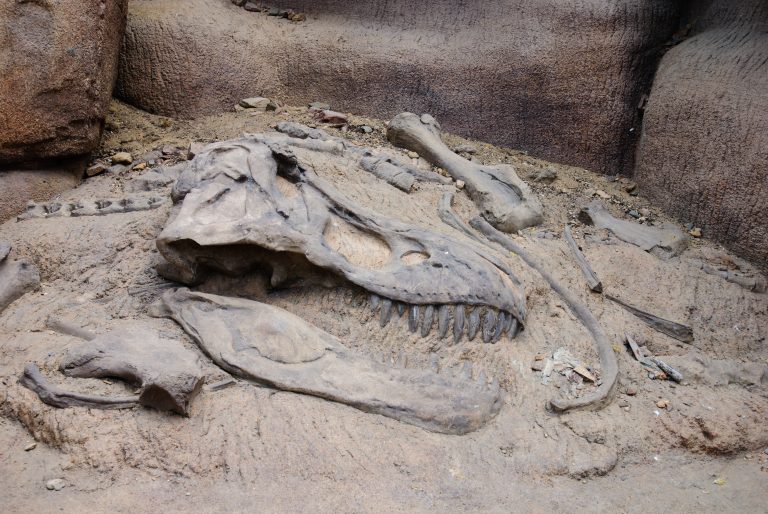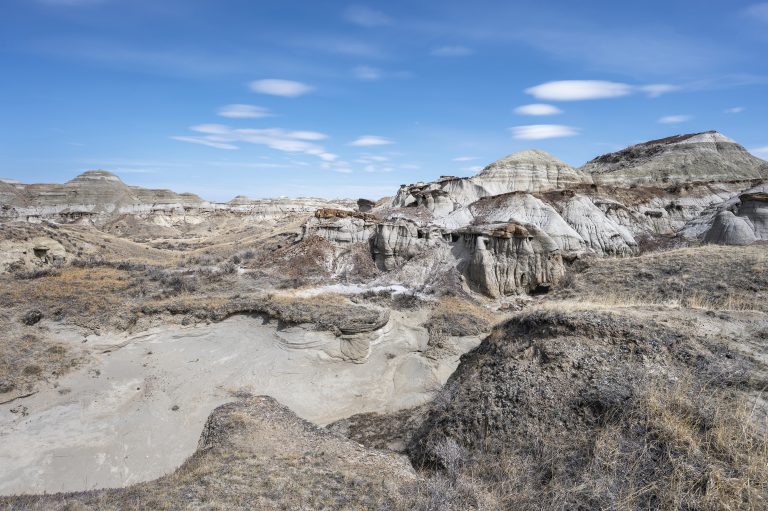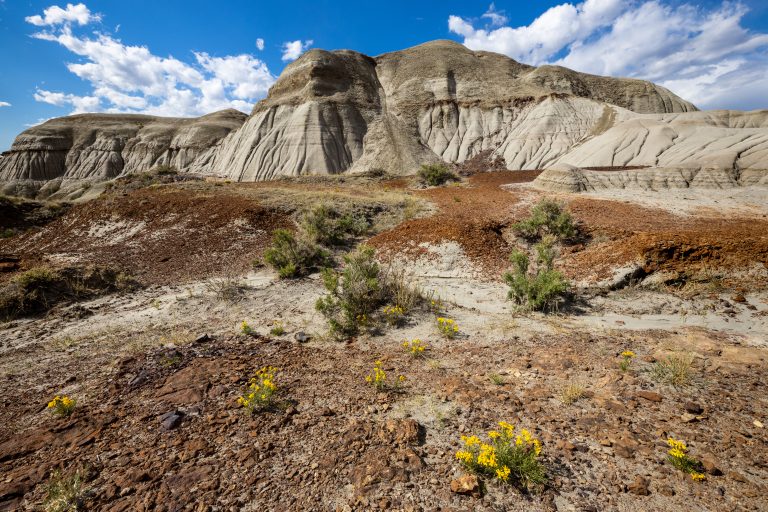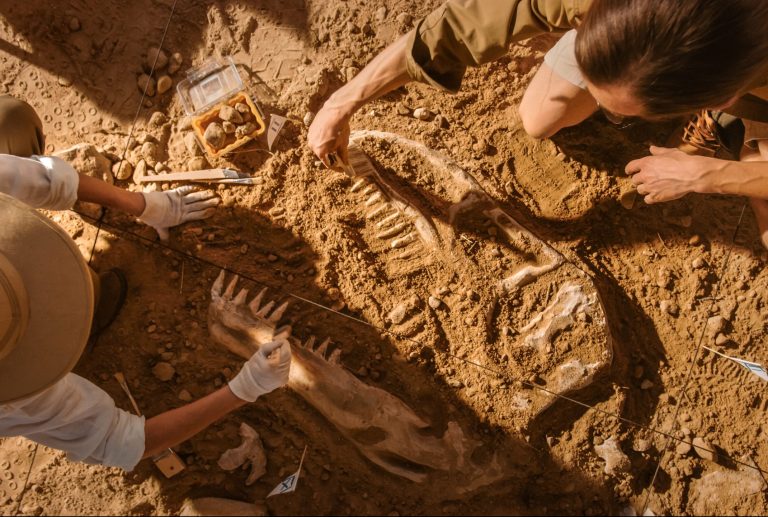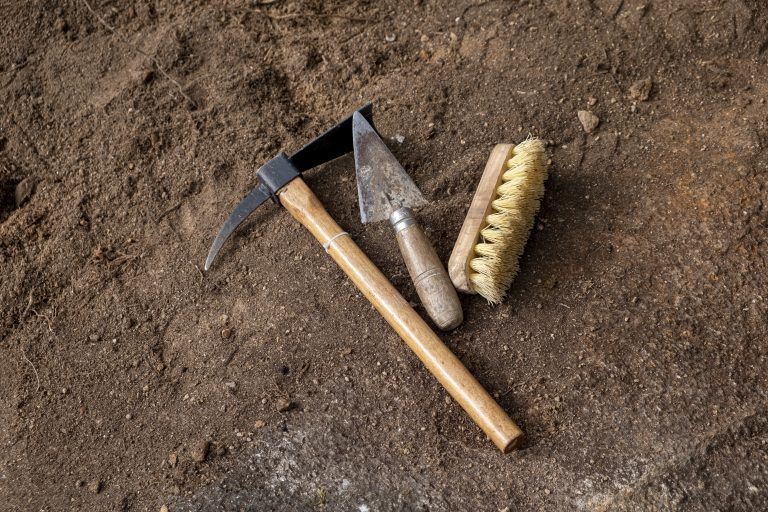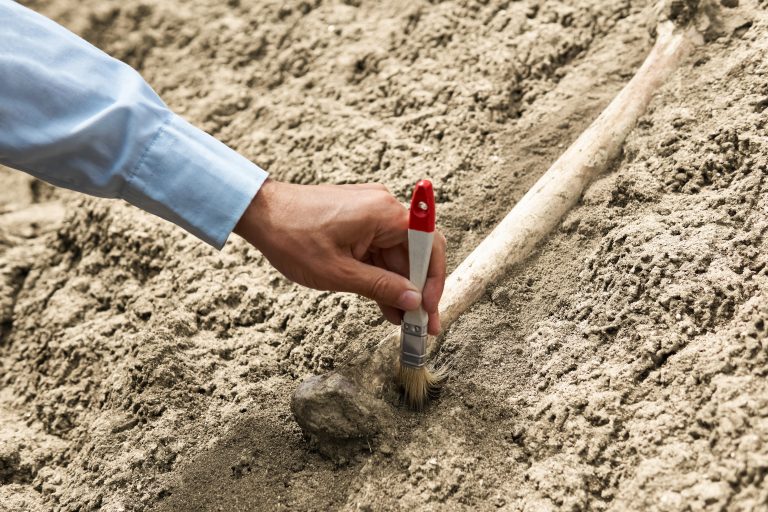5 Essential Safety Rules for Fossil Hunting Success

Embark on a prehistoric adventure with a spade in one hand and safety in the other. Here are essential safety rules to ensure your fossil hunting is not only successful but also responsible and enjoyable.
Fossil hunting is like Earth’s history detective work—rocks are clues to bygone eras. It’s a thrilling mix of science, adventure, and patience, connecting us to the planet’s past. The rush comes from uncovering relics untouched since the dinosaur age. Remember, we’re visitors to these time capsules, so tread lightly.
Whether you’re a pro or a newbie, the lure of fossil hunting is undeniable. Success starts with preparation and environmental respect. Let’s explore the essentials for safe and fruitful expeditions.
1. Research and Permissions

Before you even think about packing your gear, do your homework. Research the area you’re planning to visit, including its geological history and the types of fossils you might encounter. Knowledge is power (and safety), and understanding the terrain can save you from sticky situations.
Hey hey! Don’t forget to subscribe to get our best content 🙂
Don’t forget, that the land you’re venturing onto may be protected or privately owned. Always secure the necessary permissions or permits. Trespassing is not only illegal but it can land you in a heap of trouble. Plus, respecting landowner rights is just good fossil-hunting karma.
And remember, some sites may have specific regulations about fossil collection. The last thing you want is to have your prehistoric prize confiscated because you didn’t follow the rules. Check with local authorities or paleontological societies to ensure you’re in the clear.
2. Appropriate Gear Selection
The right gear can make or break your fossil hunting adventure. Don’t skimp on sturdy footwear – those rocks aren’t forgiving, and a twisted ankle is a surefire way to ruin your day. Think of your shoes as trusty sidekicks that will help you navigate the terrain.
Dress for success (and for the weather). Layers are your friends, especially when conditions can change faster than a velociraptor’s sprint. And gloves? Non-negotiable. They’re the armor for your hands, guarding against sharp edges and unforgiving surfaces.
Lastly, your tools are the key to unlocking the past. A good hammer, chisel, and brush are the trifecta of fossil hunting. Treat them well, and they’ll serve you faithfully as you chip away at the sands of time.
3. Weather Awareness Tips

Weather can be as unpredictable as a dino’s mood swings, so keep an eye on the forecast. Sudden rain can turn a dig site into a slippery mess, and heat can be as oppressive as a T-Rex’s jaw clamping down on its prey.
Dress in layers and pack rain gear even if the sky is as clear as a pterosaur’s flight path. Conditions can change in the blink of an eye, and staying dry and warm is key to a successful hunt. And don’t underestimate the power of the sun – sunscreen and hats are your first line of defense against a stealthy UV attack.
Hydration is critical; always bring more water than you think you’ll need. Dehydration sneaks up on you like a clever raptor, and it’s just as dangerous. Keep sipping and stay alert to your body’s needs.
4. Field Communication Plans
In the field, your phone might be as useless as a chocolate teapot. A signal can be spotty, so plan. Inform someone of your whereabouts and expected return time – it’s a simple step that can be a lifesaver.
If you’re hunting in a group, establish meet-up points and check-in times. A whistle or a walkie-talkie can be a lifeline if you get separated. Remember, there’s safety in numbers, so buddy up and keep an eye out for each other.
And let’s not forget the power of the old-fashioned method: a map and compass. They don’t rely on batteries or signals, and they could guide you back to civilization if your tech fails you.
5. Site Preservation Ethics

Fossil sites are not just hunting grounds; they’re part of our shared heritage. It’s crucial to practice ‘take only pictures, leave only footprints’ ethics. Disturbing the site more than necessary is like tearing pages out of history’s book.
Collect responsibly and with moderation. The thrill of discovery doesn’t give us the right to plunder. Remember, fossils provide valuable scientific information, and over-collecting can rob us of knowledge yet to be gained.
And if you do find something extraordinary, consider reporting it to a museum or a paleontological institution. It’s a way of giving back, ensuring that your discovery can be studied and appreciated by all. Plus, it feels pretty good to contribute to science!
Handling Found Fossils Safely
When you uncover a fossil, it’s not just about grabbing your treasure and running. Extracting fossils requires a gentle touch and a bit of patience. Rushing can damage both the fossil and potentially your safety.
Use the right tools for the job. A small brush can clear debris without harming the fossil, while a chisel can help you carefully extract it from its rocky tomb. It’s like performing delicate surgery on Mother Nature’s masterpieces.
If the fossil is large or seems unstable, it’s best to leave it and seek professional help. The last thing you want is a fossil crumbling to dust or taking you down with it. Safety first, even when the past is calling your name.
Common Fossil Hunting Mistakes
One of the biggest blunders is going in unprepared – it’s like facing a T-Rex with a toothpick. Always have a plan and the right gear. Overconfidence can lead to mistakes, so stay humble and stay safe.
Ignoring local rules and regulations is a no-go. This isn’t just about following the law; it’s about respect. You wouldn’t want someone digging up your backyard without asking, would you?
And let’s not overlook the classic error of neglecting to stay hydrated. It’s a simple fix, but forgetting to drink water can leave you as dry as a desert where dinosaurs once roamed. Keep that water bottle handy!
Emergency Preparedness Basics
Always pack a first aid kit – it’s as essential as a paleontologist’s hammer. Scrapes and bruises are par for the course, and being prepared means you can patch up and carry on.
Know basic first aid procedures. In the event of an injury, you’ll be the hero who can administer care until professional help arrives. It’s like being a medic in the field of ancient battles.
And have an emergency plan. Know the nearest hospital or ranger station. Being prepared for the worst-case scenario ensures that you can handle any curveballs thrown your way, even if they’re as big as a Diplodocus.
Conclusion: Safe Hunting Practices
Fossil hunting is an incredible journey into Earth’s distant past, but it’s not without its risks. By sticking to these safety rules, you’re ensuring that the adventure is not just exciting but also responsible and secure.
Remember, the thrill of discovery is matched only by the importance of preserving these ancient treasures for future generations. So gear up, stay safe, and happy hunting!
In the quest for ancient treasures, safety is the true key to success. By following these guidelines, your fossil hunting expeditions will be as rewarding as they are safe, leaving both you and our planet’s history intact for future explorers to cherish.

